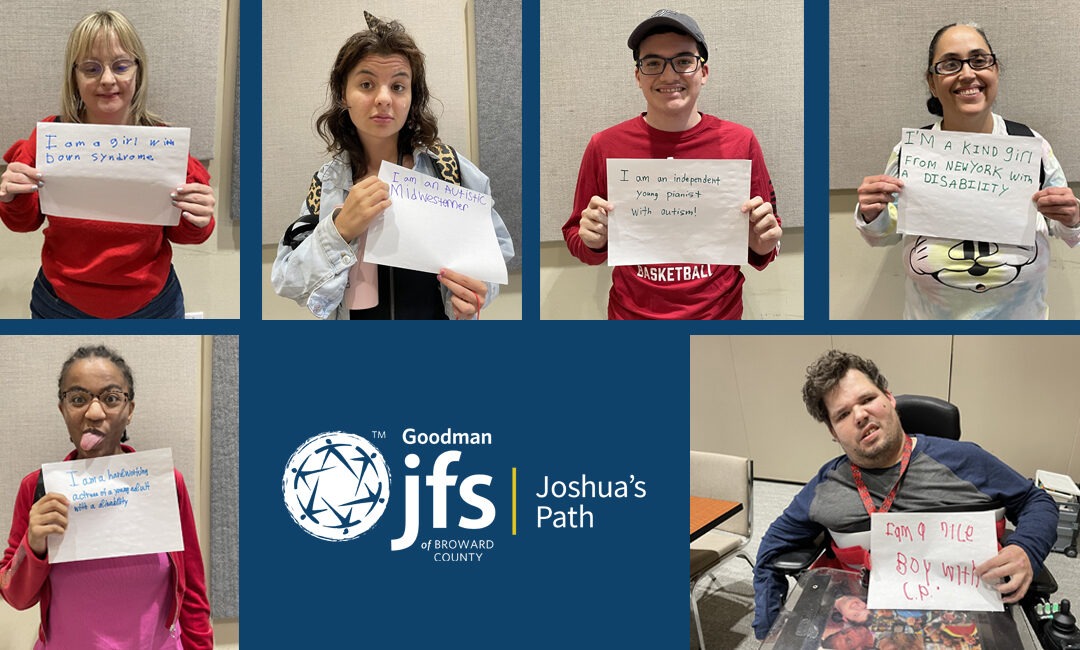As we celebrate Jewish Disability Awareness and Inclusion Month (JDAIM), it’s essential to reflect on the significance of language in shaping perceptions and fostering inclusivity. Words hold immense power, especially when discussing topics as sensitive as disability. In collaboration with the Goodman JFS Joshua’s Path BOOST participants, we’re shining a light on the importance of using respectful and inclusive language when addressing individuals with disabilities.
Respect Individual Preferences:
One crucial aspect of inclusive language is acknowledging that there isn’t a one-size-fits-all approach. Individuals with disabilities have diverse preferences regarding how they wish to be referred to. Rather than assuming, it’s best to ask individuals about their preferred terminology. Some may prefer “person-first” language, while others may opt for “identity-first” language. This simple act of respect demonstrates our commitment to honoring each person’s individuality and agency.
Avoid Euphemisms and Condescension:
Using euphemisms to describe disabilities, such as “differently-abled,” can unintentionally diminish the lived experiences of individuals. It’s important to use clear and direct language, avoiding euphemisms that sidestep the term “disability.” Instead of masking reality, let’s embrace language that acknowledges and respects the person’s identity.
Reject Pity and Patronizing Language:
Phrases like “suffers from” or “stricken by” often carry undertones of pity and condescension. Individuals with disabilities are not defined by their conditions, nor should they be portrayed as objects of inspiration for merely living their lives. It’s crucial to refrain from praising individuals for their perceived bravery or courage in the face of their disability. Respect means recognizing their autonomy and treating them as equals, not as objects of pity or inspiration.
Shed Outdated and Offensive Terminology:
Language evolves, and so must our understanding of respectful discourse. Terms like “special needs,” “retard,” “lame,” and “handicap” belong to a former time when society’s understanding of disability was limited. Today, these terms are rightly recognized as derogatory and offensive. Let’s commit to using language that reflects our contemporary understanding and respect for individuals with disabilities.
Emphasize Personhood Over Disability:
A person’s disability is just one aspect of their identity; it does not define them entirely. Referring to individuals by their disability, rather than their name, diminishes their personhood and reinforces harmful stereotypes. Instead, let’s prioritize using their name or a humanizing noun like “person with” to affirm their dignity and individuality.
Inclusive language isn’t merely about following a set of rules; it’s about recognizing the humanity and inherent worth of every individual. By respecting individual preferences, avoiding condescension, rejecting outdated terminology, and prioritizing personhood over disability, we can foster a more inclusive society where everyone feels valued and respected. Let’s commit to using our words to uplift and empower individuals with disabilities, creating a world where diversity is celebrated, and inclusion is the norm.


